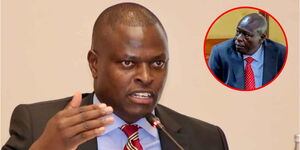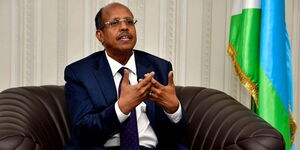The Salaries and Remunerations Commission (SRC) has unveiled a harmonization policy that will see civil servant’s allowances merged to help the commission manage remuneration expenditure.
SRC on Monday, March 22, revealed that allowances paid to all government employees will be merged and renamed, and others restructured.
“Everybody will be affected. Some will impact more on other sectors of the employees. New employees will be affected where an allowance is being abolished. If provided for in a contractual obligation, it will not affect immediate staff enjoying that benefit,” the Salaries and Remuneration Commission Chairperson Lyn Mengich told journalists.
The SRC boss observed that there has been redundancy on allowance payments, which will either be retained with new rationing or abolished completely.
Mengich noted that SRC is focusing on minimizing disparities on the average remuneration package with the objective of having all remunerations not going beyond 40 percent of the basic pay.
While addressing journalists at Hilton Hotel, Mengich also noted that there are over 200 allowances being paid to civil servants, which has accrued over the years, thus increasing the wage bill substantially.
In the new review expected to take effect in about six months from June 2021, the total payment will be used as a point of focus in addition to the traditional basic salaries. She further noted that no sector will be spared when implementing the new harmonization structure.
“All the other ten or so policies will impact each and every employee in the sector,” she said.
The development comes barely two days after the Controller of Budget Controller Margaret Nyakango released the 2020/2021 financial year report on government spending and debt status.
In the report, the government spent a total of Ksh 248.86 billion on the remuneration of public servants.
Out of this, the Teachers Service Commission recorded the highest expenditure at Ksh 135.54 billion, which was more than half the total expenditure on compensation to employees.
Staff salaries and allowances of the Interior Ministry was Ksh 41.97 billion, Ministry of Foreign Affairs spent Ksh 3.45 billion, Ministry of Health spent Ksh 5 billion, while the parliament spent Ksh 7.78 billion.
Nyakango also observed that Kenya’s borrowing was at an alarming rate and could affect future economic plans.
“Increased public borrowing may result in undesirable fiscal consequences such as high-interest rates, inflation, and overburdening of future generations,” Nyakango said.












